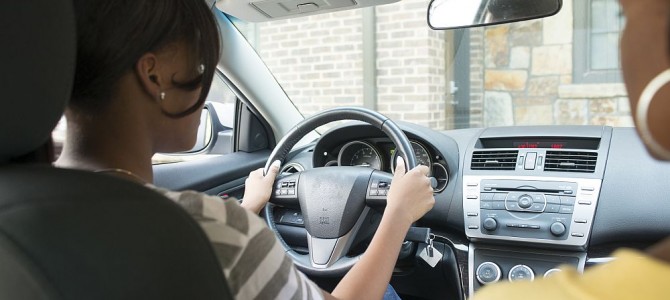
Mommy blogs are full of tales of woe about the early childhood struggles of sleep battles and potty training mishaps. It’s not uncommon for mom sites to erupt over the breast versus bottle debate. Read any wildly popular listicle about hilarious things kids say and do, and it’ll be full of the daily lives and exploits of toddlers and preschoolers.
Where’s the commiseration for the moms and dads deep in the trenches with teens? Where’s the passion on gap years, going straight to college, or whether working or trade schooling is the answer? Why are online parenting experiences disproportionately focused on tiny tots? The baby and toddler years are only a small fraction of childhood, so pretending that parenting consists of “Honest Toddler”-style concerns excludes the majority of the parenting experience.
Those endless why questions don’t stop after kindergarten. They become deeper, more complex, and kids no longer exclusively ask you their questions. They ask teachers, peers, and complete strangers on social media. No longer are the main concerns in their lives about the color of the sky, whether they’ll really turn orange if they eat too many carrots, and if grandma will always be there. Now it’s about terrorism in nightclubs, the friend of a friend who is about to become a teen mom or dad, and the consequences of bullying.
Instead of googling if it’s okay for your kid to live on chicken nuggets and meticulously sliced toast, you worry they’re developing an eating disorder. Parents of preschoolers can get tired of the sheer volume of questions that can come their way in an average day. I’m raising my fourth preschool-aged child right now, and I honestly believe the sole reason drinking games based on all those “Why” questions haven’t been widely adopted is that we’d all be too drunk to function.
Kids Need You, It’s Just Less Obvious
By the teen years a shift has happened. When they’re not in school they no longer need you to do their laundry or make them a sandwich. The neediness has decreased (often to the deep relief of parents who just want to pee with the door closed and be able to go out on a date without paying the sitter more than the outing itself costs). Instead of a toddler thinking they’re independent and proclaiming “Me do it!” you suddenly have a child that apparently can do it.
Until they can’t. Between the media we introduce increasingly early and the friends we might not even know, teens can go their own direction. That direction might be the one we want them to go in, or it might be them stepping into party culture and self-destruction. When you’re not with them all of the time, when you’re not their only means of transportation, and when you’re nostalgically recalling your own best moments of youth, it can be hard to remember you’re still the parent, still in charge, still needed as much as you were when that child was a baby.
While many kids that age might think they know everything, the truth is their prefrontal cortex isn’t fully developed. Teens definitely don’t know everything, and they’re not done asking questions. They might be done asking mom and dad questions, though, and that’s where misinformation and astonishingly large lapses in judgment waltz into the lives of your once-sheltered child (and everyone else around them).
This is why even when it’s tempting to try to be a friend instead of a parent, it’s the wrong choice. Your kids are surrounded by friends. They need you to show them how to be an actual adult at some point. It’s not glamorous, but teach them how to work out a meal plan that doesn’t revolve around takeout and boxed mac and cheese. Schools don’t focus on what used to be consumer math—balancing a checkbook, talking about taxes, and setting a budget that avoids credit card debt. If you’re not good at this, learn it together. You’re raising them to move out— and to be able to stay out.
It’s a Different Kind of Struggle and Joy
If you go online or to the bookstore looking for resources for parents, the bulk of what you’ll find is for the early elementary-aged set and under. Endless wisdom on where poop goes. Limited wisdom on finding that all-important, character-building first job in a changing economic climate. If you need help with hormones and planning life after high school, the parenting circuit can be a rather lonely place. While there might be some shame in admitting you don’t know how to discipline and aren’t sure whether to do preschool or keep them home another year, that doesn’t come close to admitting that your child is failing high school or can’t seem to shower more than once a quarter.
When parents of non-toddlers are in the news, it’s usually less than flattering. Consider “Why your teenager thinks you’re an idiot” at The Guardian: “Of course, we are far from alone and that is some comfort. All teenagers think their parents are stupid. It’s an evolutionary imperative: a cruel, but near universal one, motivating them to leave the nest and us to eject them.” All teenagers? Well, you know what they say about absolutes. I know plenty of teens who are a joy and pleasure to be around and don’t engage in teensplaining.
As a teen I spent time writing lists of things I would never, ever do once I was a parent. This happened most frequently when I was having a difference of opinions with one of the adults in my life. I wasn’t alone in this pastime. In case you either didn’t adopt this practice as an angsty teen or you’ve managed to forget those magical years, let me share some teen advice with you.
Don’t pester us with annoying questions like, ‘What are you thinking?’ or ‘What’s wrong?’ I’ll tell you if and when I want to … Stay up late. We want to start important conversations after you want to be in bed. After midnight you might be able to ask those annoying questions and actually receive an answer … Give us more freedom and let us take more risks. We need to learn how to fail and how to come back from it. We need to learn our own boundaries and we need to learn new things, new skills, challenge our fears.
Toddlers may make memorable quips, and preschoolers certainly ask questions we try to write in their baby books (some people still keep those, right?), but the older kids have some perspective and ability to have a conversation with you about abstract ideas as well as their lives. This is little-discussed, and that’s a shame, because these moments, even when they’re late at night, are every bit as special as their first smile.
Moving from Firsts to Lasts
We try to document that first smile. We try to capture their first steps. We worry about what food to feed them first, whether they’ll speak on time (and then if they’ll repeat us swearing), and how to babyproof every inch of our house. Are those moments as formative and lasting, in the long term, as some of the firsts that slip quietly by, often without parental notice?
The first time they’re offered a drink—will they accept it? The first time they’re asked to have sex. Will they do it? The first time they’re driving and distracted, or another driver is, or an accident happens—will they survive? Even more than all these firsts are the lasts. The last time they want you to rock them to sleep. The last time you pick them up to carry them. The last time a kiss is able to fix an injury. The last night they sleep at home before moving out.
We don’t add a baby to our family, we add another human. Someone who will learn, grow, and change. I’m not sure if the chasm of silence on teens, especially their positives, is due to some parental desire for privacy for our kids, or merely that the online generation of parents largely don’t have teens yet. Perhaps it’s that we’re secretly reliving our own youth. It’s a disservice that when teens hit the media, it’s usually for doing something either monstrously stupid or just plain monstrous. That’s not the whole picture, or even really the bulk of it.
Big kids are also helpful and insightful. They develop a sense of nuance and humor that allows them to tell jokes that are actually funny. Just as little kids need parental comfort and reassurance when they stumble and fall or life gets disappointing, so do big kids. How that looks may change, but the importance doesn’t decrease with time. Most kids will reach a size where you can no longer pick them up physically when they fall, but you can continue to be there emotionally, with compassion instead of I-told-you-sos, and as a parent, not a friend.
I don’t believe I’m mired in “idiot soup,” nor am I praying for these years to speed by. The opposite is true. While everyone seems quick to tell parents of babies and toddlers to enjoy these moments because they go so fast, no one seems to tell that to the parents of older kids. They should.
Whatever portrayals are out there of all the ages and stages of our kids, there’s no obligation to opt in. Blogs can’t help your baby sleep, online communities won’t come potty train your toddler, and Internet gurus won’t prevent back-talking teens. The answer, across the board, is more parental involvement. Engage your real, actual child. Be present, whether that child is 12 weeks old or 12 years old. That tiny tot won’t be tiny for long.









